Massachusetts Junior Feature: MacKenzie Conant
February 21, 2020
Civilian Marksmanship Program▸The First Shot▸Massachusetts Junior Feature: MacKenzie ConantBy Serena Juchnowski, CMP Feature Writer
For Billerica, Mass., junior MacKenzie Conant, her marksmanship journey has always been about family. Though she was thrilled to earn her Distinguished Rifleman’s Badge in 2018, she notes that her journey “was fairly ordinary and kind of a blur now.” This does not mean she does not value the distinction of the badge, only that the journey pales in comparison to its unique presentation and what it now represents to her.
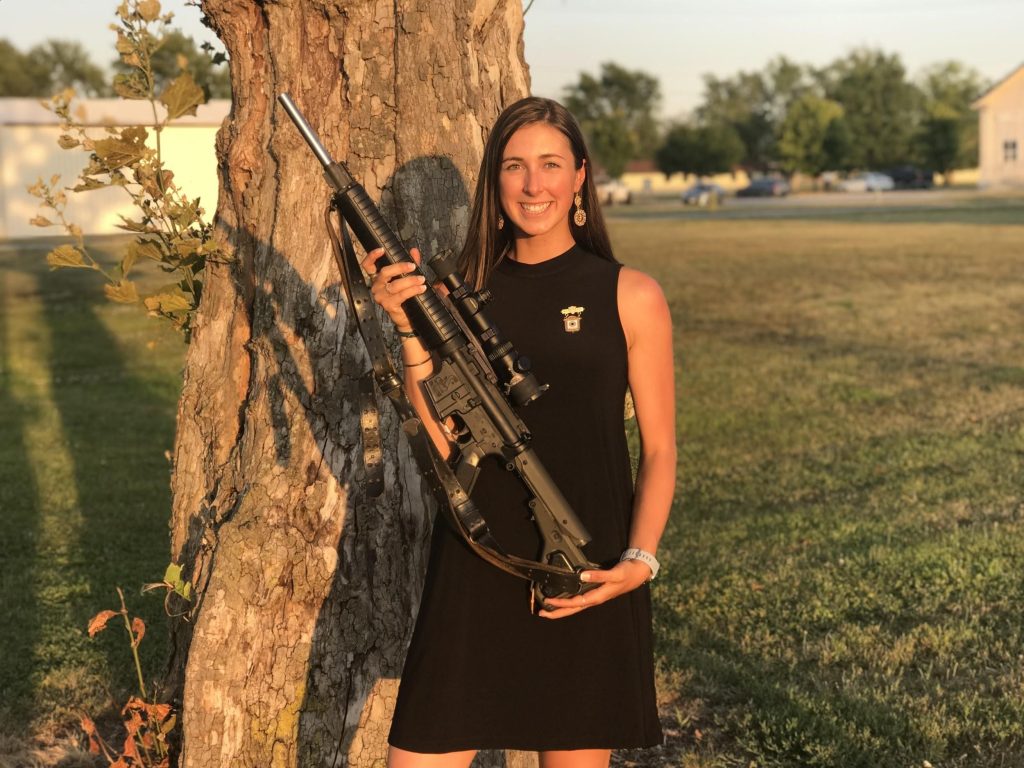
Distinguished Badges are traditionally presented during the National Matches by the winners of the President’s 100 and National Trophy Individual events. MacKenzie’s older brother, Sgt. Verne Conant of the United States Army Marksmanship Unit (AMU), surprised her by presenting her badge and pinning her on stage.
MacKenzie recalls, “Him pinning me on stage was extra special, knowing that he had his own slew of accomplishments while on the AMU that made this possible.”
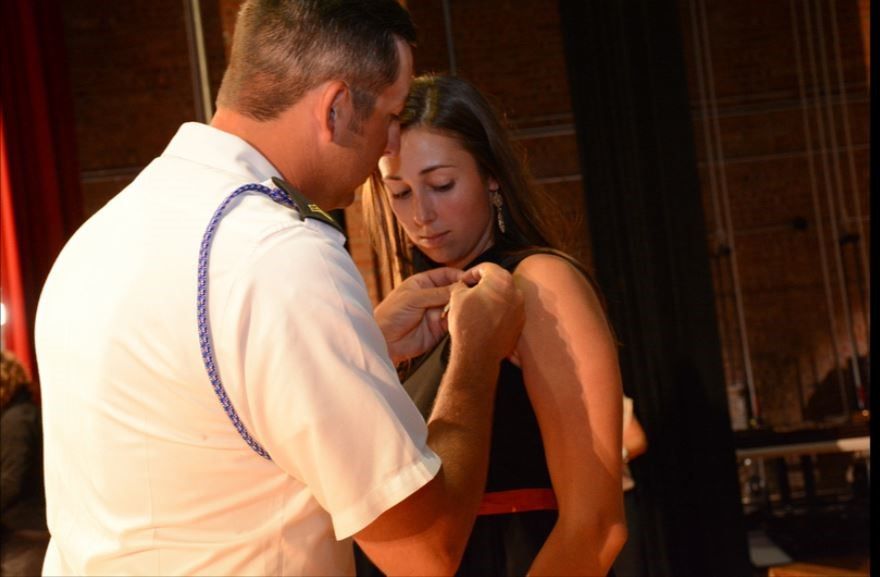
Besides earning her Distinguished Rifleman’s Badge, MacKenzie has her own sets of accomplishments. She started her shooting career in middle school, inspired and helped along by her dad and brother. First came beginning safety courses with .22’s, which her brother Verne helped teach. As she entered high school, MacKenzie found herself competing locally and nationally in smallbore and air rifle with the more advanced juniors of the Reading Rifle and Revolver Club.
In 2016, MacKenzie earned a spot in the Junior Olympics by placing as the state high scoring female in smallbore at a Massachusetts Junior Olympic qualifier. After also shooting above the qualifying score in air rifle, she was able to compete in that event as well.
Nowadays, MacKenzie considers highpower her primary discipline.
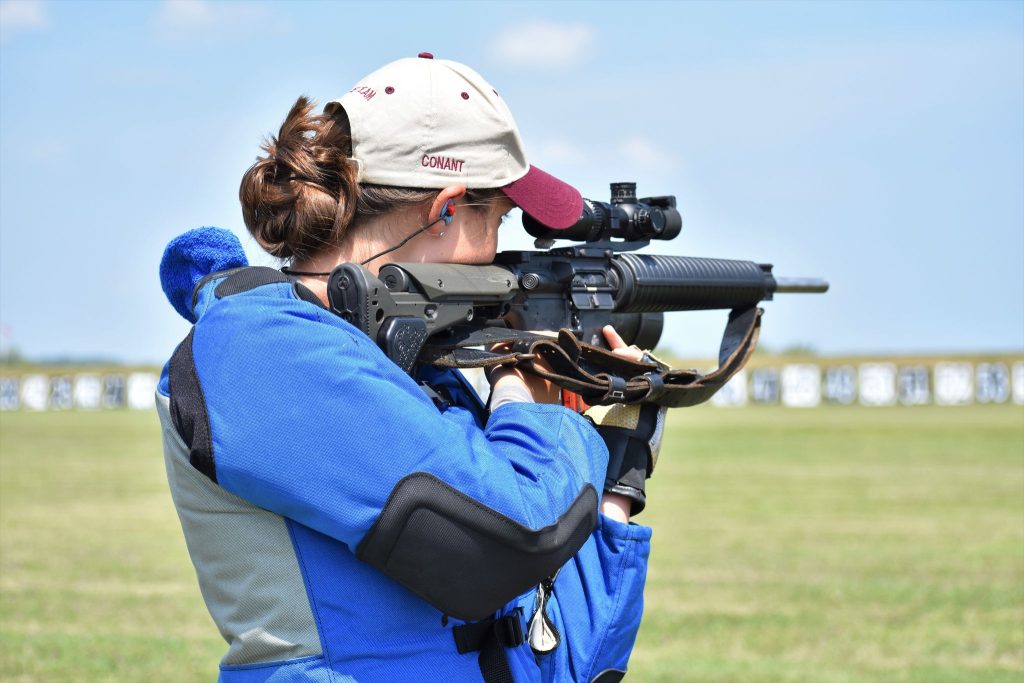
“Smallbore and air rifle gave me a great foundation for highpower,” she said. “They taught me about trigger control and most importantly position and hold. I attribute my scores in offhand to all of my air rifle training.”
She went on. “I had a great coach in smallbore and air, Maureen Trickett [CMP’s Massachusetts State Director and also a highpower shooter], who would have us practice without a jacket on, and that really makes you focus on your core position. Also, shooting 60 shot offhand matches gave us plenty of practice and repetition.”
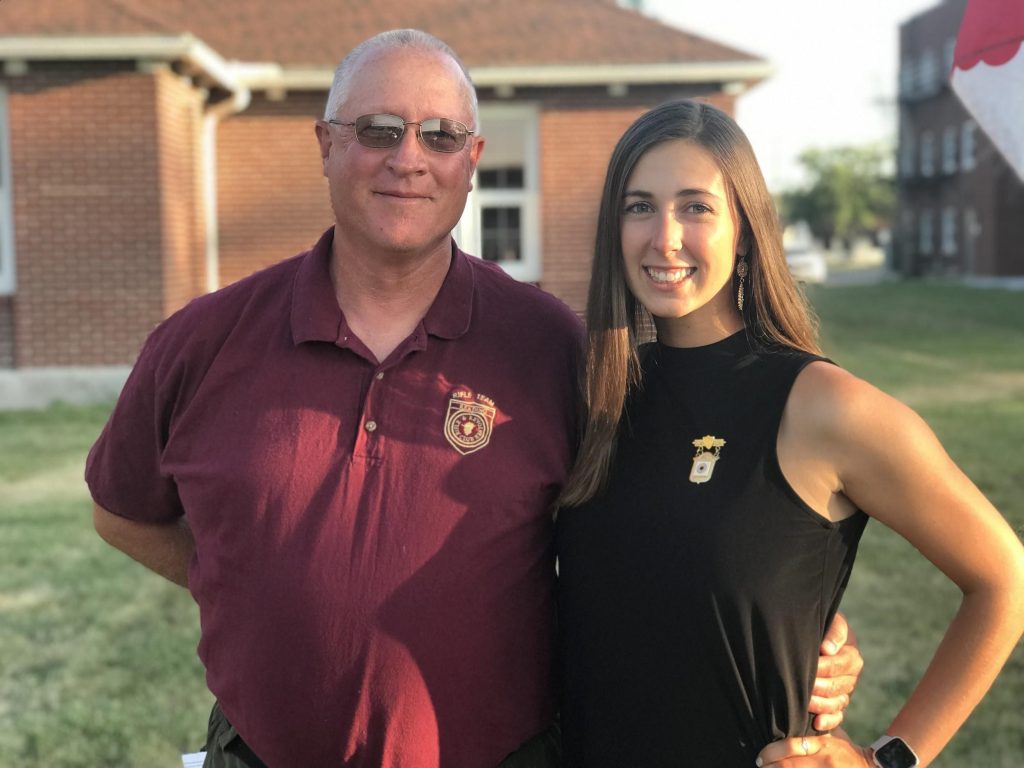
MacKenzie first attended the National Matches at Camp Perry in 2015, and three years later, she earned the highest award recognized by the U.S. Government for excellence in marksmanship: the Distinguished Rifleman’s Badge.
Three years – the same amount of time it will take MacKenzie to finish her degree in Parks, Recreation and Tourism with a minor in Marketing from the University of Maine.
“As for career plans, that is the million-dollar question,” she said. “I am currently toying with the idea of graduate school as well as looking into internship opportunities for this summer.”
The beginning of a new decade, 2020 does not just close out her time as an undergraduate but also her time as a junior competitor. Per CMP rules, a competitor is considered a “junior” through the year of his/her 20th birthday.
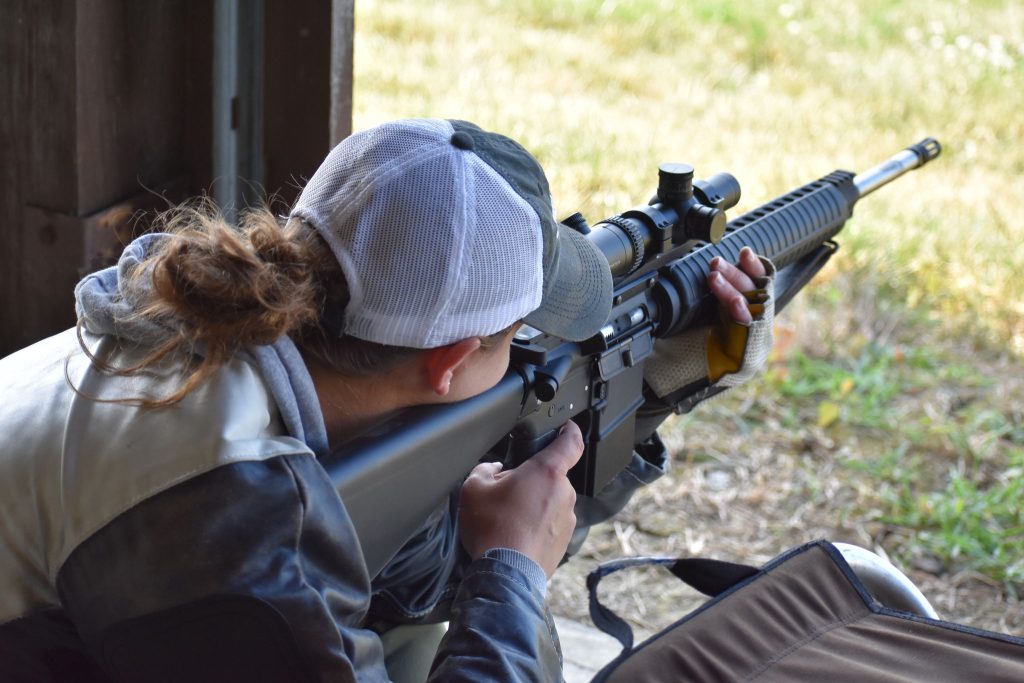
Being a “junior” means several things. It means reduced match fees, opportunities to take part in special clinics and events, and, most of all, it means competing as a junior – usually as part of a junior team. Being a member of a junior team is a unique experience, as it brings together kids with a common interest (an interest typically uncommon among most others their age), and gives them the support and resources to learn, compete and grow while representing something bigger than one’s self.
Whatever MacKenzie chooses to do, she is not giving up shooting. Competing in highpower is not only rewarding for her, but it gives her an opportunity to spend time with her dad and brother. MacKenzie remembers her brother coaching her, driving with her to practices and shooting alongside him at the National Matches.
“He only gets leave a couple times a year, so traveling out to Ohio to compete lets me see him an extra time,” she said. “Families tend to grow apart once their kids go off to school, so shooting keeps me coming home.”
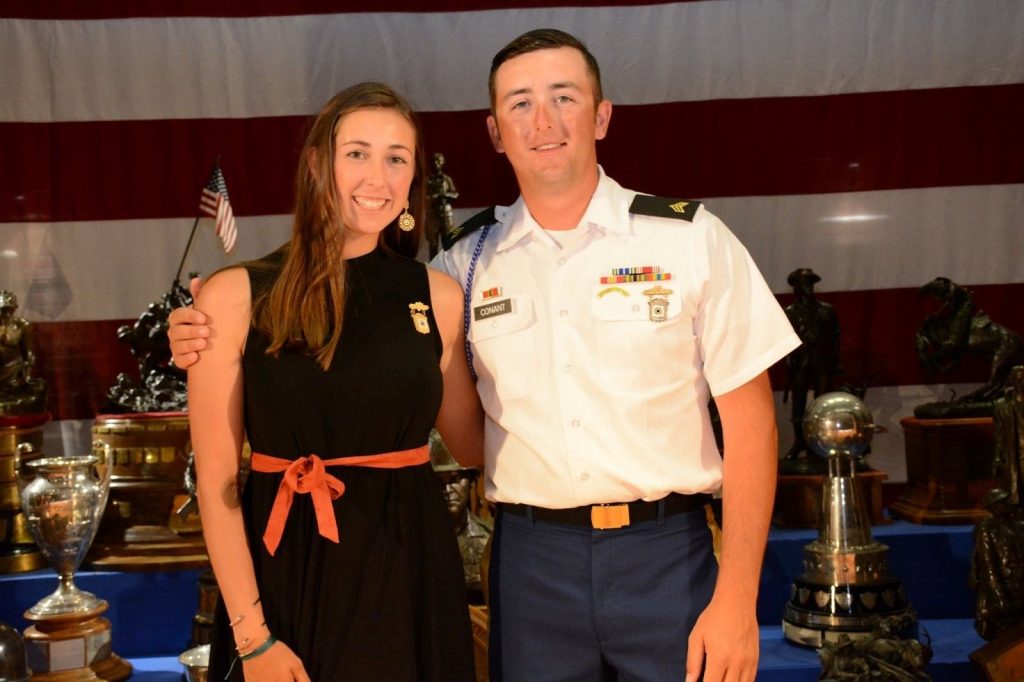
Home – not just to her family but to the highpower community. MacKenzie’s favorite thing about marksmanship is “the family around it. Seeing the same faces at the range every weekend and connecting with people across the U.S. Also, this sport is unique in that you can compete side-by-side with the world’s greatest, and most of the time you would never know. . . until you see their scores.”
One thing MacKenzie has learned is how to ask for help. She notes that discipline and responsibility come first, followed by learning more about yourself and realizing that you will never know everything.
For MacKenzie, the end of her time as a junior is really just another beginning, not anywhere close to the end of her time shooting. She will have some “new” borrowed equipment and will have to purchase some of her own – much of the equipment she had been using on loan from Reading Rifle and Revolver. She looks forward to passing down her equipment and the memories surrounding it to a young shooter but recognizes how hard it can be for juniors-turned-adults to continue to compete.
Again, her solution is to ask for help from the community. While the resources may not come from a junior club, someone may have an extra coat or something else they are willing to sell or loan.
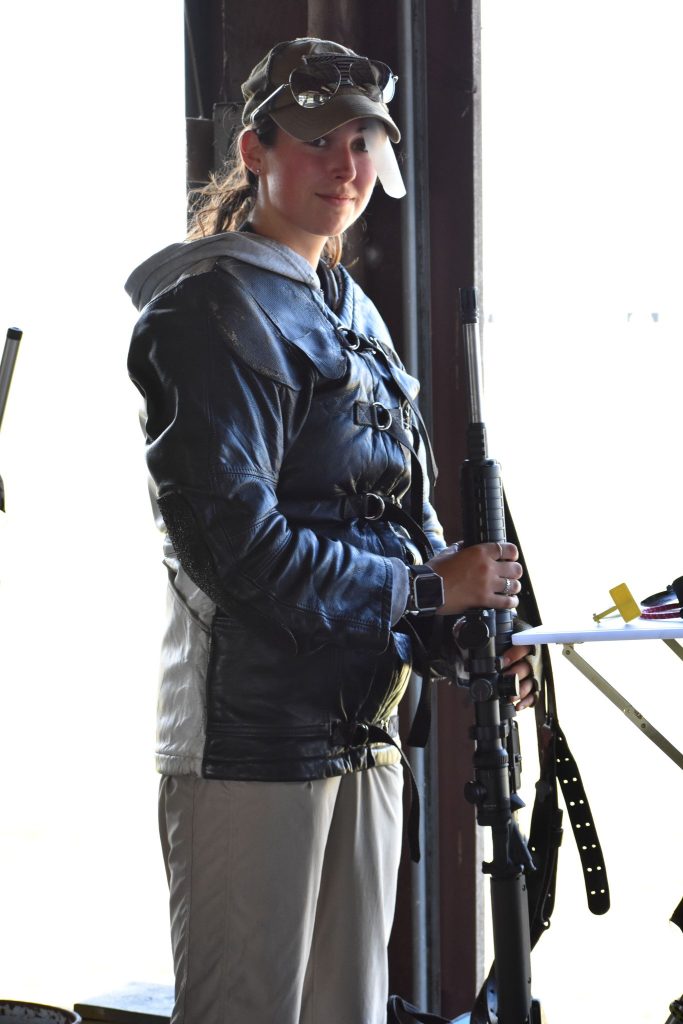
Going forward, MacKenzie hopes to make the President’s 100, but will be limited by the burden of school loans and work.
“I certainly plan to keep competing, if nothing else to do it to spend time with my dad and brother…I may not be as competitive as I would like but I will certainly continue for the fun of the sport.”
For other juniors aging out who think they may no longer have the time to compete MacKenzie reminds them, “Remember why you started.”
She explained her own reasonings, saying, “For me it was to spend time with my family, so I know I can’t stop all together. My scores may not be as high as I would like, but I will certainly still make it out to that firing line at least a few times a year to continue to partake in a sport that I love.”